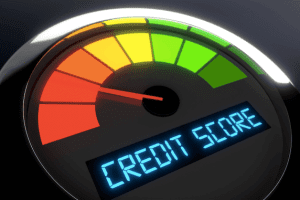A co-signer loan is a type of loan that involves 2 or more individuals agreeing to be jointly responsible for repaying a loan. Co-signing a loan is a significant financial obligation and should not be taken lightly. Before agreeing to be a co-signer, individuals should carefully consider the potential risks and implications involved, which will be discussed in this article.
How Does A Co-Signer Loan Work?
In a co-signer loan, one individual, known as the primary borrower, applies for a loan but may not meet the lender’s requirements for creditworthiness or income. To increase the likelihood of loan approval, the primary borrower seeks the help of another person with a stronger credit score, known as the co-signer, to support the loan application. The co-signer provides a guarantee to the lender that if the primary borrower fails to repay the loan, the co-signer will assume responsibility for the outstanding debt.
Both the primary borrower and co-signer provides information about their financial situation to the lender. This includes their credit history, income and employment details.
Although the co-signer is involved in the loan, they do not get any rights or ownership towards what is borrowed. They are only there to guarantee someone else’s debts and repay them if the primary borrower falls behind on the payments or defaults.
What Types Of Loans Can Be Co-Signed?
Co-signer loans are commonly used by individuals who may have limited credit history, poor credit scores, or insufficient income to qualify for a loan on their own. This form of borrowing is often used for various purposes as the majority of different types of loans can be co-signed.
Examples include personal loans, auto loans, student loans, home repair loans, mortgages and student loans to name a few. While co-signer loans can provide opportunities for borrowers who may not otherwise be eligible for a loan, they also come with significant implications for both the primary borrower and the co-signer.

What Are The Benefits Of Co-Signer Loans?
Co-signer loans can provide a way for borrowers with limited credit or financial resources to access funds that they may not qualify for on their own. If the primary borrower has a limited credit history, poor credit score or insufficient income, having a co-signer with a stronger credit profile can help offset these deficiencies and improve the chances of getting approved for a loan. This can also be particularly helpful for young borrowers who are just starting to establish their credit history or for individuals who have experienced financial setbacks in the past and are working on rebuilding their credit.
Having a co-signer with a strong credit profile can also help the primary borrower obtain better terms. For instance, they may be able to secure a lower interest rate or a longer loan term.
What Are The Drawbacks Of Co-Signer Loans?
By agreeing to co-sign the loan, the co-signer essentially takes on the same legal responsibility as the primary borrower to repay the loan in full if the primary borrower fails to do so. This means that if the primary borrower defaults on the loan or fails to make payments, the lender has the right to pursue the co-signer for repayment.
According to the Federal Trade Commission’s Credit Practice Rules, “You may have to pay up to the full amount of the debt if the borrower does not pay. You may also have to pay late fees or collection costs, which increase this amount.” The lender can also use the same collection methods against the co-signer as used against the borrower, including suing you or garnishing your wages.
The co-signer’s credit score and financial well-being may also be affected if the primary borrower defaults on the loan, as missed payments or defaults can be reported on both the primary borrower’s and the co-signer’s credit reports.

What Should You Consider If You’re Thinking Of Co-Signing A Loan?
If you are thinking of co-signing a loan, then you should consider steps you can take to protect your financial wellbeing. For instance, you should ask your family member or friend if they are certain they will be able to afford the repayments. Perhaps you can suggest they create a budget or plan to show you how they will be able to repay the loan, with regular communication and lots of updates throughout the process.
You should prepare for the worst case scenario and make sure that if in the unlikely event the primary borrower is unable to meet repayments, that you would be able to cover them. Speak to the lender and find out how much you would need to pay if the borrower defaults.
Checking your credit reports on a regular basis is also a sensible idea. This will help you catch any missed payments or errors, and ensure that you do not have damage to your credit score. If this does happen, rectify this by contacting the primary borrower right away to try resolve the problem or dispute any errors in the credit report with the lender or via the credit reporting agency.
Was this article helpful?
Justine is a full-time writer with lots of expertise and a wealth of experience in the financial world. In particular, she specializes in household income and consumer finance across the United States. Follow her articles for useful advice and top tips, guides on how to save money and lots more.
